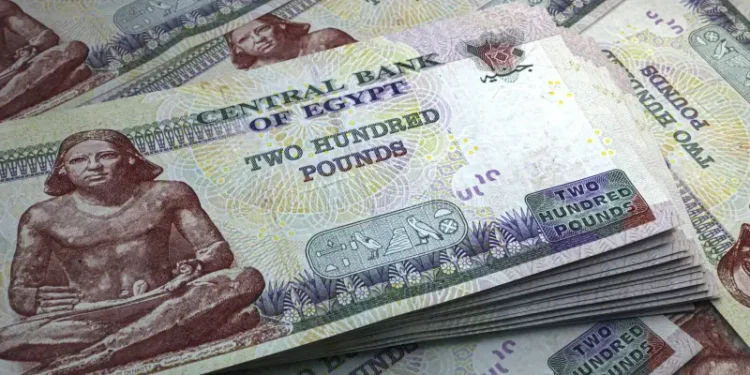Egypt has initiated a significant devaluation of its currency, resulting in a depreciation of approximately 35%, subsequent to a massive interest rate increase amidst the nation’s severe economic turmoil.
As of 12 p.m. in Cairo on Wednesday, the Egyptian pound plummeted to 48.18 against the US dollar, a stark decline from its previous stability at around 30.9 over the past year. The central bank’s decision to raise rates at an impromptu meeting triggered the rapid currency shift, coupled with an announcement that the market will now dictate the exchange rate.
This pivotal move involved a substantial 600 basis points increase in the key rate, elevating it to 27.25%, as disclosed by the central bank. The decision to unify the nation’s exchange rates is deemed crucial and is anticipated to pave the way for an agreement with the International Monetary Fund (IMF) to augment Egypt’s existing $3 billion loan to over $10 billion, incorporating contributions from other partners.
The recent devaluation became feasible following Egypt’s negotiation of a $35 billion deal with the United Arab Emirates (UAE) last month to develop segments of Egypt’s Mediterranean coast and other areas. This monumental investment commitment, described as Egypt’s largest, came as a surprise to investors, significantly impacting Egypt’s dollar bonds.
“We’ll have to wait to see where it settles,” remarked Farouk Soussa, an economist at Goldman Sachs Group Inc., expressing anticipation for the currency’s stabilization within the range of 45-50. Soussa noted the “mega hike” as a significant market confidence booster.
This devaluation brings the pound closer to its value on the black market, aligning with the IMF’s recommendation for Egypt to implement a more flexible official exchange rate to counter inflation rates nearing 30%.
The Monetary Policy Committee of Egypt’s central bank emphasized the acceleration of monetary tightening to expedite the disinflation process and ensure a reduction in underlying inflation. The upcoming Muslim holy month of Ramadan served as an informal deadline for implementing the devaluation, avoiding sudden price shocks during the period of extensive family gatherings and meals.
Egypt’s bond spreads over US Treasury yields narrowed following the currency adjustment, signaling improved market sentiment. The benchmark EGX30 stock index surged to a record high, with notable gains observed in Commercial International Bank and exporters like Abou Kir Fertilizers & Chemical Industries Co.
The IMF’s keen interest in safeguarding Egypt’s vulnerable economy, reliant on substantial foreign-exchange inflows from tourism and Suez Canal fees, underscores the significance of the recent policy measures aimed at stabilizing the currency and bolstering economic resilience amidst external threats.
In the view of analysts, while short-term volatility may persist, the transition towards a more flexible exchange-rate regime is expected to enhance Egypt’s economic outlook both cyclically and structurally, contributing to long-term stability and growth.









